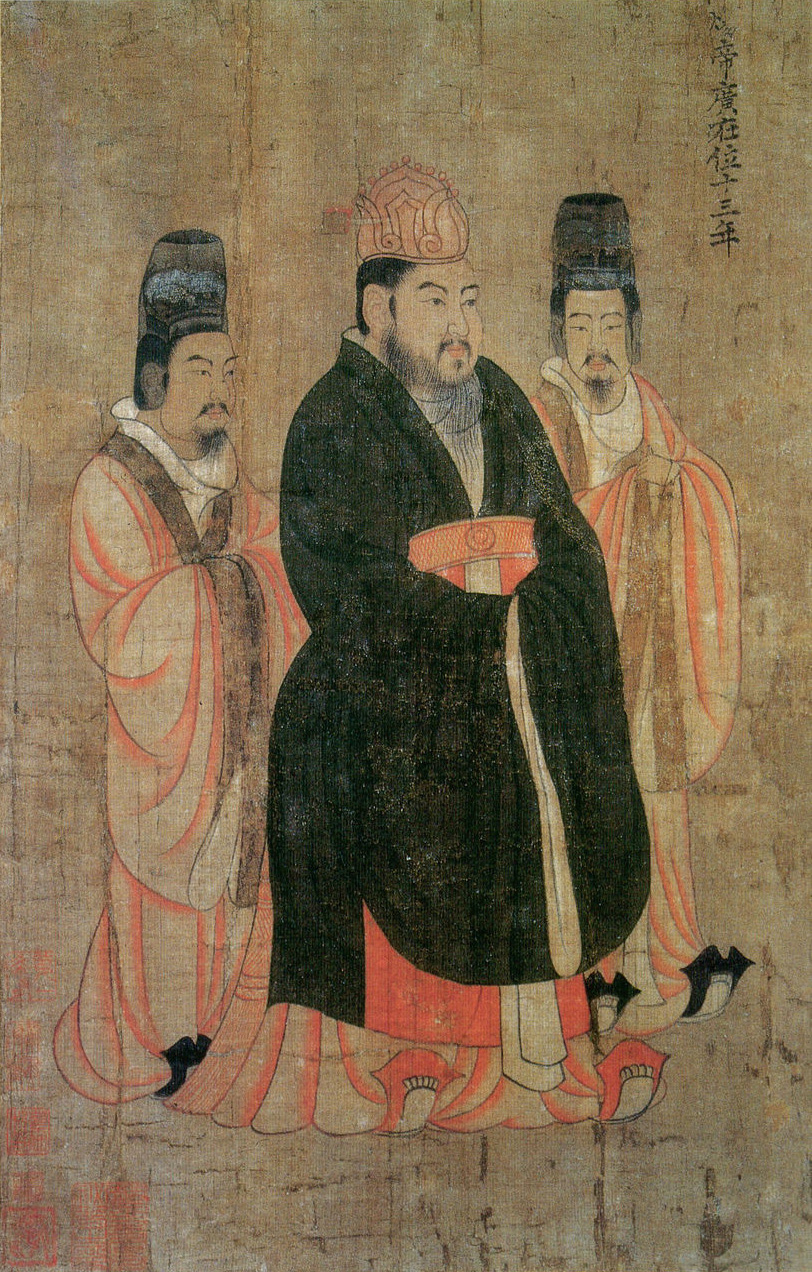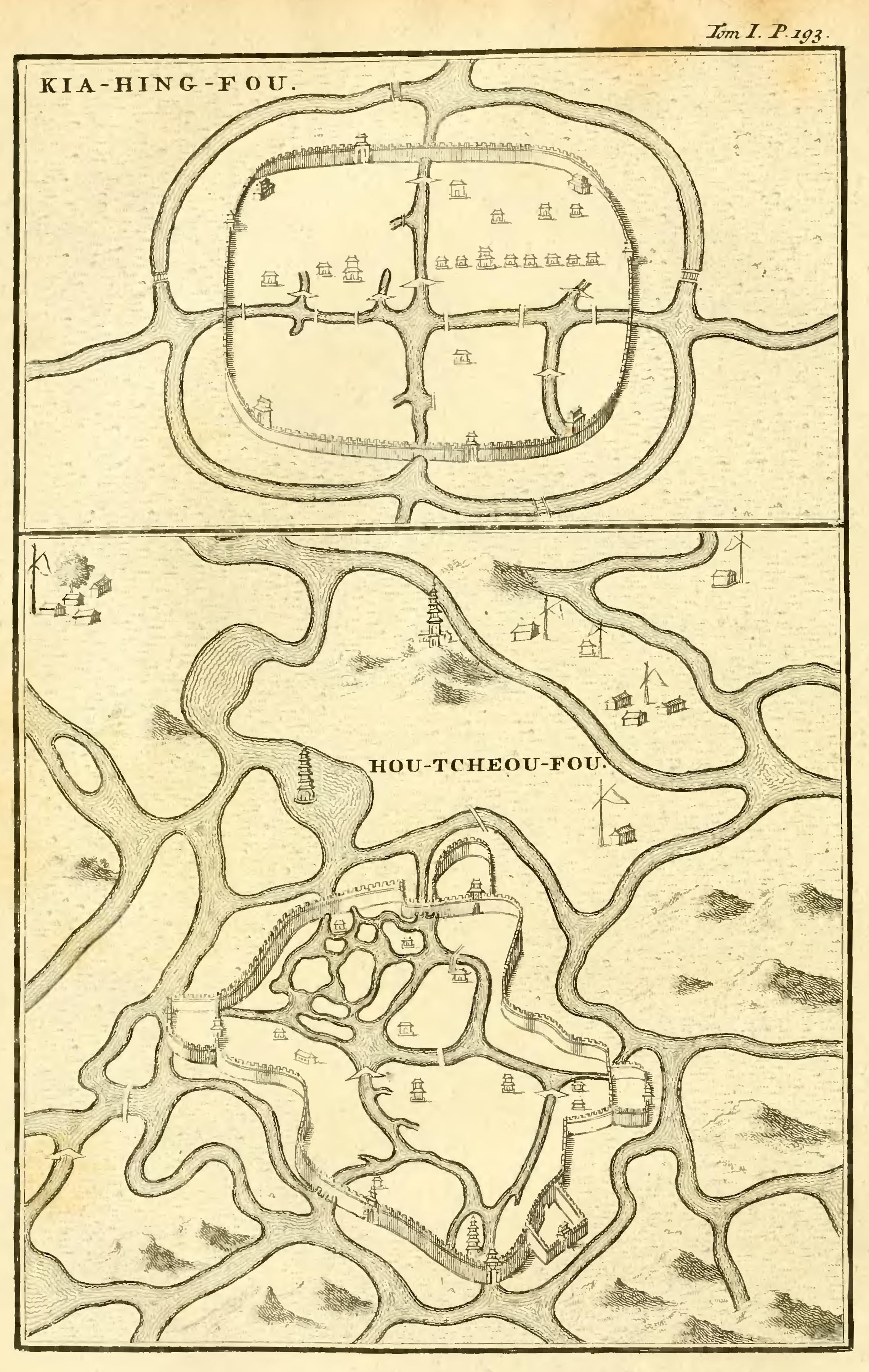|
Linghu Tao
Linghu Tao (), courtesy name Zizhi (), formally the Duke of Zhao (), was an official of the Chinese Tang dynasty. He was the leading chancellor during the last nine years of the reign of Emperor Xuānzong but was removed from his chancellor position after Emperor Xuānzong's death, subsequently serving several terms as military governor (''Jiedushi'') in the circuits. Background and early career It is not known when Linghu Tao was born. He was probably the second son of Linghu Chu,''Zizhi Tongjian'', vol. 248. who was a prominent official under several emperors, including serving as chancellor during the reign of Emperor Xianzong, and Linghu Tao had an older brother named Linghu Xu ().''Old Book of Tang'', vol. 172. His family descended from Linghu Zheng, an aristocrat from the north-western Dunhuang Commandery( Linghu clan of Dunhuang). Linghu Tao passed the imperial examinations in the ''Jinshi'' class in 830, during the reign of Emperor Xianzong's grandson Emperor Wen ... [...More Info...] [...Related Items...] OR: [Wikipedia] [Google] [Baidu] |
Linghu
Linghu () is a Chinese compound surname. During the Zhou dynasty, a general, Wei Ke ( 魏顆) scored many victories for Zhou and was granted the city of Linghu. All his descendants took the compound surname Linghu. Notable people * Bruce Linghu (born 1954), Taiwanese politician and diplomat * Linghu Chu (766–837), an official of the Tang dynasty * Linghu Defen (583–666), a historian-official of the Tang dynasty * Linghu Tao (795–872), an official of the Tang dynasty *Fictional: Linghu Chong, the protagonist in Louis Cha's ''wuxia ( , literally "martial arts and chivalry") is a genre of Chinese literature, Chinese fiction concerning the adventures of martial artists in ancient China. Although is traditionally a form of historical fantasy literature, its popularity ha ...'' novel '' The Smiling, Proud Wanderer'' {{surname Chinese-language surnames Individual Chinese surnames ... [...More Info...] [...Related Items...] OR: [Wikipedia] [Google] [Baidu] |
Imperial Examination
The imperial examination was a civil service examination system in History of China#Imperial China, Imperial China administered for the purpose of selecting candidates for the Civil service#China, state bureaucracy. The concept of choosing bureaucrats by merit rather than by birth started Imperial examination in Chinese mythology, early in Chinese history, but using written examinations as a tool of selection started in earnest during the Sui dynasty (581–618), then into the Tang dynasty (618–907). The system became dominant during the Song dynasty (960–1279) and lasted for almost a millennium until its abolition during the late Qing reforms, late Qing dynasty reforms in 1905. The key sponsors for abolition were Yuan Shikai, Yin Chang and Zhang Zhidong. Aspects of the imperial examination still exist for entry into the civil service of both China and Taiwan. The exams served to ensure a common knowledge of writing, Chinese classics, and literary style among state officials. ... [...More Info...] [...Related Items...] OR: [Wikipedia] [Google] [Baidu] |
Wei Mo
Wei Mo (魏謩''Old Book of Tang'', vol. 176. or 魏謨;''New Book of Tang'', vol. 97. 793–858), courtesy name Shenzhi (申之), was an official of the Chinese Tang dynasty, who served as a chancellor during the reign of Emperor Xuānzong. Background Wei Mo was born in 793, during the reign of Emperor Dezong. He was a fifth-generation descendant of the famed early Tang chancellor Wei Zheng, who had served a distinguished career under Emperor Taizong. Wei Mo's great-grandfather Wei Yin (魏殷), grandfather Wei Ming (魏明), and father—whose name was variously given as Wei Feng (魏馮) or Wei Ping (魏憑) all served as county magistrates. During Emperor Wenzong's reign Wei Mo passed the imperial examinations in the ''Jinshi'' class in 833, during the reign of Emperor Dezong's great-great-grandson Emperor Wenzong. When the official Yang Rushi (楊汝士) served as the prefect of Tong Prefecture (同州, in modern Weinan, Shaanxi), he invited Wei to serve as his secr ... [...More Info...] [...Related Items...] OR: [Wikipedia] [Google] [Baidu] |
Eunuch (court Official)
A eunuch ( , ) is a male who has been castration, castrated. Throughout history, castration often served a specific social function. The earliest records for intentional castration to produce eunuchs are from the Sumerian city of Lagash in the 2nd millennium BCE. Over the millennia since, they have performed a wide variety of functions in many different cultures: courtiers or equivalent Domestic worker, domestics, for espionage or clandestine operations, ''castrato'' singers, Concubinage, concubines or sexual partners, religious specialists, soldiers, royal guards, government officials, and guardians of women or harem servants. Eunuchs would usually be servants or Slavery, slaves who had been castrated to make them less threatening servants of a royal court where physical access to the ruler could wield great influence. Seemingly lowly domestic functions—such as making the ruler's bed, bathing him, cutting his hair, carrying him in his litter (vehicle), litter, or even rel ... [...More Info...] [...Related Items...] OR: [Wikipedia] [Google] [Baidu] |
Emperor Taizong Of Tang
Emperor Taizong of Tang (28January 59810July 649), previously Prince of Qin, personal name Li Shimin, was the second emperor of the Tang dynasty of China, ruling from 626 to 649. He is traditionally regarded as a co-founder of the dynasty for his role in encouraging his father Li Yuan (Emperor Gaozu) to rebel against the Sui dynasty at Jinyang in 617. Taizong subsequently played a pivotal role in defeating several of the dynasty's most dangerous opponents and solidifying its rule over China proper. Taizong is considered to be one of the greatest emperors in China's history, and henceforth his reign became regarded as the exemplary model against which all future emperors were measured. His era, the "Reign of Zhenguan" () is considered a golden age in ancient Chinese history and was treated as required studying material for future crown princes. Taizong continued to develop imperial examination systems. He asked his officials to be loyal to policies, not people, in order to e ... [...More Info...] [...Related Items...] OR: [Wikipedia] [Google] [Baidu] |
New Book Of Tang
The ''New Book of Tang'', generally translated as the "New History of the Tang" or "New Tang History", is a work of official history covering the Tang dynasty in ten volumes and 225 chapters. The work was compiled by a team of scholars of the Song dynasty, led by Ouyang Xiu and Song Qi. It was originally simply called the ''Tangshu'' (唐書, Book of Tang) until the 18th century. History In Chinese history, it was customary for dynasties to compile histories of their immediate predecessor as a means of cementing their own legitimacy. As a result, during the Later Jin (Five Dynasties), Later Jin dynasty of the Five Dynasties and Ten Kingdoms period, a history of the preceding Tang dynasty, the ''Old Book of Tang'' () had already been compiled. In 1044, however, Emperor Renzong of Song ordered a new compilation of Tang history, based on his belief that the original ''Old Book of Tang'' lacked organization and clarity. The process took 17 years, being finally completed in 1060. ... [...More Info...] [...Related Items...] OR: [Wikipedia] [Google] [Baidu] |
Arthritis
Arthritis is a general medical term used to describe a disorder that affects joints. Symptoms generally include joint pain and stiffness. Other symptoms may include redness, warmth, Joint effusion, swelling, and decreased range of motion of the affected joints. In certain types of arthritis, other organs such as the skin are also affected. Onset can be gradual or sudden. There are several types of arthritis. The most common forms are osteoarthritis (most commonly seen in weightbearing joints) and rheumatoid arthritis. Osteoarthritis usually occurs as an individual ages and often affects the hips, knees, shoulders, and fingers. Rheumatoid arthritis is an autoimmune disorder that often affects the hands and feet. Other types of arthritis include gout, lupus, and septic arthritis. These are inflammatory based types of rheumatic disease. Early treatment for arthritis commonly includes resting the affected joint and conservative measures such as heating or icing. Weight Weight ... [...More Info...] [...Related Items...] OR: [Wikipedia] [Google] [Baidu] |
Bai Minzhong
Bai Minzhong (白敏中; 792–861), courtesy name Yonghui (用誨), formally Duke Chou of Taiyuan (太原醜公), was a Chinese politician of the Tang dynasty, serving as a chancellor during the reigns of Emperor Xuānzong and Emperor Xuānzong's son Emperor Yizong. He was a second cousin of the renowned poet Bai Juyi. Background and early career Bai Minzhong was born in 792, during the reign of Emperor Dezong. His family was originally from Taiyuan.''Old Book of Tang'', vol. 166. The family traced its ancestry to the great Qin general Bai Qi, but the traceable parts of the ancestry went back to the Northern Zhou official Bai Jian (). Bai Minzhong's grandfather Bai Lin () served as an officer at Yang Prefecture (揚州, in modern Yangzhou, Jiangsu), while his father Bai Jikang () served as a county magistrate. Bai Lin and the great poet Bai Juyi's grandfather Bai Huang () were sons of Bai Wen (), making Bai Minzhong and Bai Juyi, who was older than Bai Minzhong, second cousi ... [...More Info...] [...Related Items...] OR: [Wikipedia] [Google] [Baidu] |
Jiangsu
Jiangsu is a coastal Provinces of the People's Republic of China, province in East China. It is one of the leading provinces in finance, education, technology, and tourism, with its capital in Nanjing. Jiangsu is the List of Chinese administrative divisions by area, third smallest, but the List of Chinese administrative divisions by population, fifth most populous, with a population of 84.75 million, and the List of Chinese administrative divisions by population density, most densely populated of the 22 provinces of the People's Republic of China. Jiangsu has the highest GDP per capita and second-highest GDP of Chinese provinces, after Guangdong. Jiangsu borders Shandong in the north, Anhui to the west, and Zhejiang and Shanghai to the south. Jiangsu has a coastline of over along the Yellow Sea, and the Yangtze flows through the southern part of the province. Since the Sui dynasty, Sui and Tang dynasty, Tang dynasties, Jiangsu has been a national economic and commercial center ... [...More Info...] [...Related Items...] OR: [Wikipedia] [Google] [Baidu] |
Huzhou
Huzhou (, ; Huzhou dialect: Romanization of Wu Chinese, ''ghou² cieu¹'') is a prefecture-level city in northern Zhejiang province (Hangzhou–Jiaxing–Huzhou Plain, China). Lying south of the Lake Tai, it borders Jiaxing to the east, Hangzhou to the south, and the provinces of Anhui and Jiangsu to the west and north respectively. Huzhou is on the south bank of Taihu Lake, which it is named after. It has a history of more than 2,300 years. It governs Wuxing and Nanxun districts and three counties of Deqing, Changxing and Anji, with a total area of 5,818 square kilometers. As of the 2020 census, its population was 3,367,579 inhabitants, of whom 1,015,937 lived in the built-up (''or metro'') area made of Wuxing District as Nanxun District was not yet being conurbated. Location Huzhou, in its general aspect, is in the center of the Yangtze Delta, Yangtze River Delta Economic Area, with the city center south of the Chinese third largest freshwater lake Lake Tai. The city borde ... [...More Info...] [...Related Items...] OR: [Wikipedia] [Google] [Baidu] |




